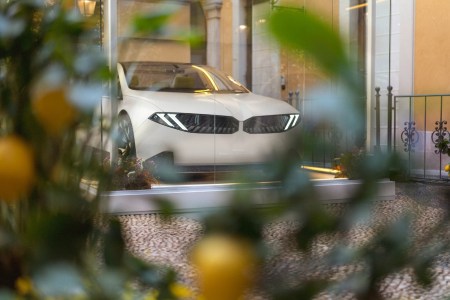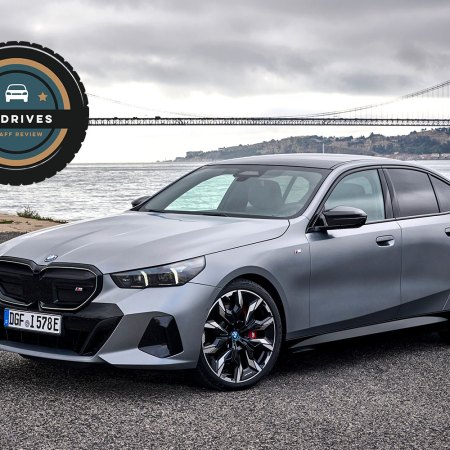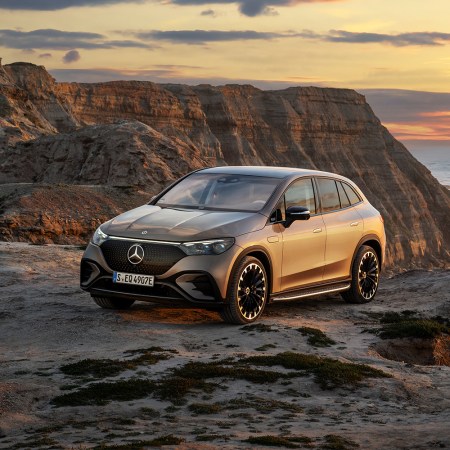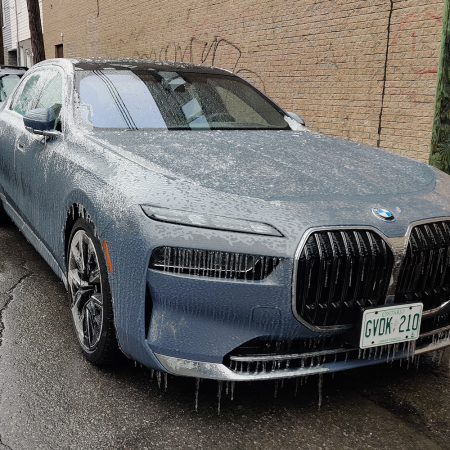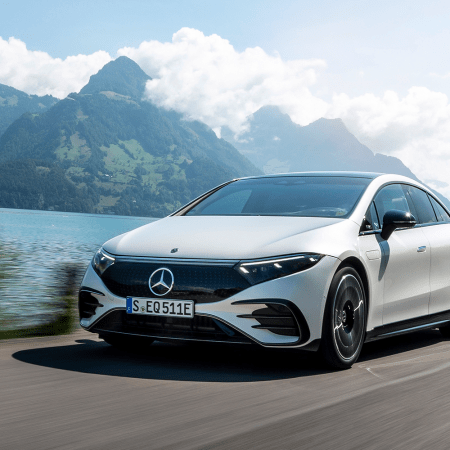If you’re following the evolution of electric vehicles nowadays, you’ve probably started hearing a lot about improvements in battery technology. Automakers like Honda and BYD are announcing their own timetables to roll out solid state batteries, which offer longer ranges and faster charging speeds — and they aren’t the only big automotive players to do so. A pair of big names recently announced very different plans to upgrade their EV battery technology.
This week, Mercedes-Benz announced that its own foray into solid state batteries has begun the process of road testing following laboratory testing in Stuttgart late last year. According to the automaker’s announcement, the car being used for its testing is a modified EQS Sedan. Journalist David Roberts, whose newsletter Volts focuses on clean energy technology, observed the significance of this in a post on social media.
“The very first EV from a global OEM that’s running on a solid-state battery,” Roberts wrote. “Long time coming.”
Mercedes-Benz worked with the Massachusetts-based Factorial Energy on the solid state batteries. Mercedes AMG High Performance Powertrains, who bring their Formula1 engineering experience to the table, were also involved in crafting this new technology. Initial findings from the testing indicate that the solid state battery is lighter than its predecessor while also having a 25% longer range. Mercedes-Benz estimates that this test vehicle will have a range of 621 miles.
Not to be outdone, BMW also recently announced an upgrade to its battery technology. What they described as “[a] new high-voltage battery concept” is set to go into production on BMW’s Neue Klasse vehicles later this year. The result, the automaker stated, would involve “significant improvements in energy density, charging speed and range.”
BMW Has Big Plans for Entry-Level EVs
It’ll be a few years before we see the new models, thoughThis is a big deal in part because BMW’s existing EV batteries have already earned the company high marks, including for the cars’ capacity to keep drivers warm during, say, a winter blackout. BMW’s announcement revealed that the company is seeing charging speed and range improved by 30% when using this new technology.
BMW’s next generation of drive technology — its sixth overall — will also be capable of bidirectional charging, which could be useful both at home and on the road. And while electric Neue Klasse vehicles will be the first to make use of it, BMW plans to utilize this technology across the breadth of its fully electric line over time. It’s another encouraging sign that EV technology is getting more efficient over time.
This article appeared in an InsideHook newsletter. Sign up for free to get more on travel, wellness, style, drinking, and culture.

